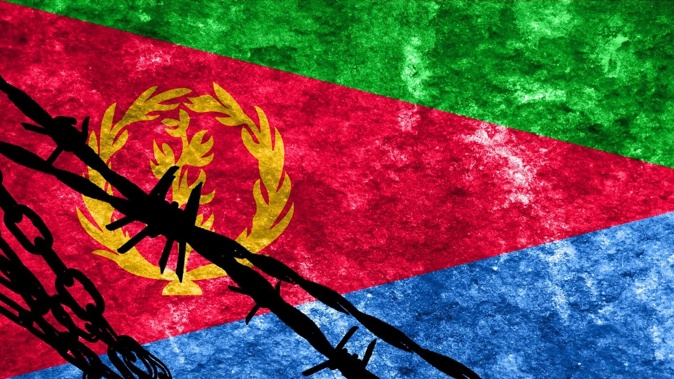
- A man from Eritrea has been granted refugee status in New Zealand, after appealing an earlier decision he didn’t qualify as a protected person.
- He escaped prison and fled the East African country after being accused of helping a female prisoner flee, minutes after giving birth.
- The Immigration and Protection Tribunal recognised his fear of persecution and lack of safe alternatives in allowing the appeal.
A midwife has found a haven in New Zealand after a daring escape from an oppressive regime in East Africa where he was imprisoned after being accused of helping a female prisoner flee hospital moments after she gave birth.
The 30-year-old man arrived in New Zealand from Denmark where he landed after escaping Eritrea, having crossed a desert on foot and the sea in a small boat.
He escaped not only the country’s military regime but an Eritrean prison in 2015 where he had been held for a month after he was charged with treason for allegedly helping a female prisoner escape the hospital where he worked, according to a recent decision by the Immigration and Protection Tribunal.
She had been escorted into the labour suite by guards but fled, leaving her baby behind, when their backs were turned and when hospital staff were distracted.
The man and his colleagues were accused of helping her but the tribunal said it could find no evidence of this.
The man, whose identity is suppressed, has now successfully challenged an earlier decision by New Zealand immigration authorities that declined him refugee status.
The tribunal found the man did have a well-founded fear of being persecuted in Eritrea, did not have anywhere else to go and was therefore recognised as a refugee.
Eritrea is an East African country listed by a human rights watch organisation as a place that subjects its population to widespread repression and places staunch restrictions on freedom of expression, opinion and faith.
 Eritrea is an East African country bounded by Ethiopia and Sudan and across the Red Sea from Saudi Arabia. Map / 123RF
Eritrea is an East African country bounded by Ethiopia and Sudan and across the Red Sea from Saudi Arabia. Map / 123RF
The plight of Eritreans was highlighted in New Zealand by former Labour MP Ibrahim Omer, who in his maiden speech to Parliament detailed his perilous journey from fleeing Eritrea to become New Zealand’s first African MP.
The man in the immigration decision escaped prison a month after being detained by hiding in a truck and then crossed the border into Ethiopia on foot and at night.
The tribunal said in its decision, based on the evidence provided, the man left Eritrea illegally and managed to escape by crossing a part of the border not closely monitored.
He then travelled to Sudan, across the Sahara in Libya to Tripoli, then by small boat into Europe.
“The journey was harsh and dangerous. The appellant lost many friends en route,” the tribunal said.
After he arrived in Europe in late 2015 the man, whose siblings had already fled Eritrea, intended to travel north to meet a brother in Norway, but was stopped at the border in Denmark where authorities detained him.
He claimed refugee protection in Denmark and was granted temporary residence permits.
The man said he experienced “high levels of racism and discrimination” and was unable to get work beyond that of a nursing assistant.
He claimed to have been given benefits instead of actual pay under this “work experience scheme”.
In July 2019, he and 10 other refugees travelled to Brazil, then overland to Peru, then north towards the US where he claimed refugee protection on arrival and was sent to immigration detention for a year.
In January 2021, he was deported to Denmark and granted a temporary residence permit valid until Eritrea was considered safe again for him to return.
The following year he arrived in New Zealand to find protection and live properly, he said, and to escape the “slow mental death” he was experiencing in Denmark.
In his refugee status claim, the man, who by then was unable to re-enter Denmark because he had missed a deadline by which he needed to have returned, said he feared being detained, tortured and killed if sent back to Eritrea.
He would be considered a military deserter, and political dissident who had escaped the country illegally.
The tribunal found the appellant’s core account to be credible, helped in part by information from the Danish Embassy.
It noted such appeals engaged civil and political rights that included the right to life, the right to be free from cruel, inhuman or degrading treatment or punishment, and the right to freedom of thought, conscience and religion.
The tribunal said, based on verified information about the treatment of political dissidents, it was satisfied the appellant was “a person of interest to the Eritrean authorities” and would likely be detained on his return without access to due process.
He also faced further military conscription, into the Eritrean Defence Forces, which was documented as committing war crimes.
Tracy Neal is a Nelson-based Open Justice reporter at NZME. She was previously RNZ’s regional reporter in Nelson-Marlborough and has covered general news, including court and local government for the Nelson Mail.
Take your Radio, Podcasts and Music with you









